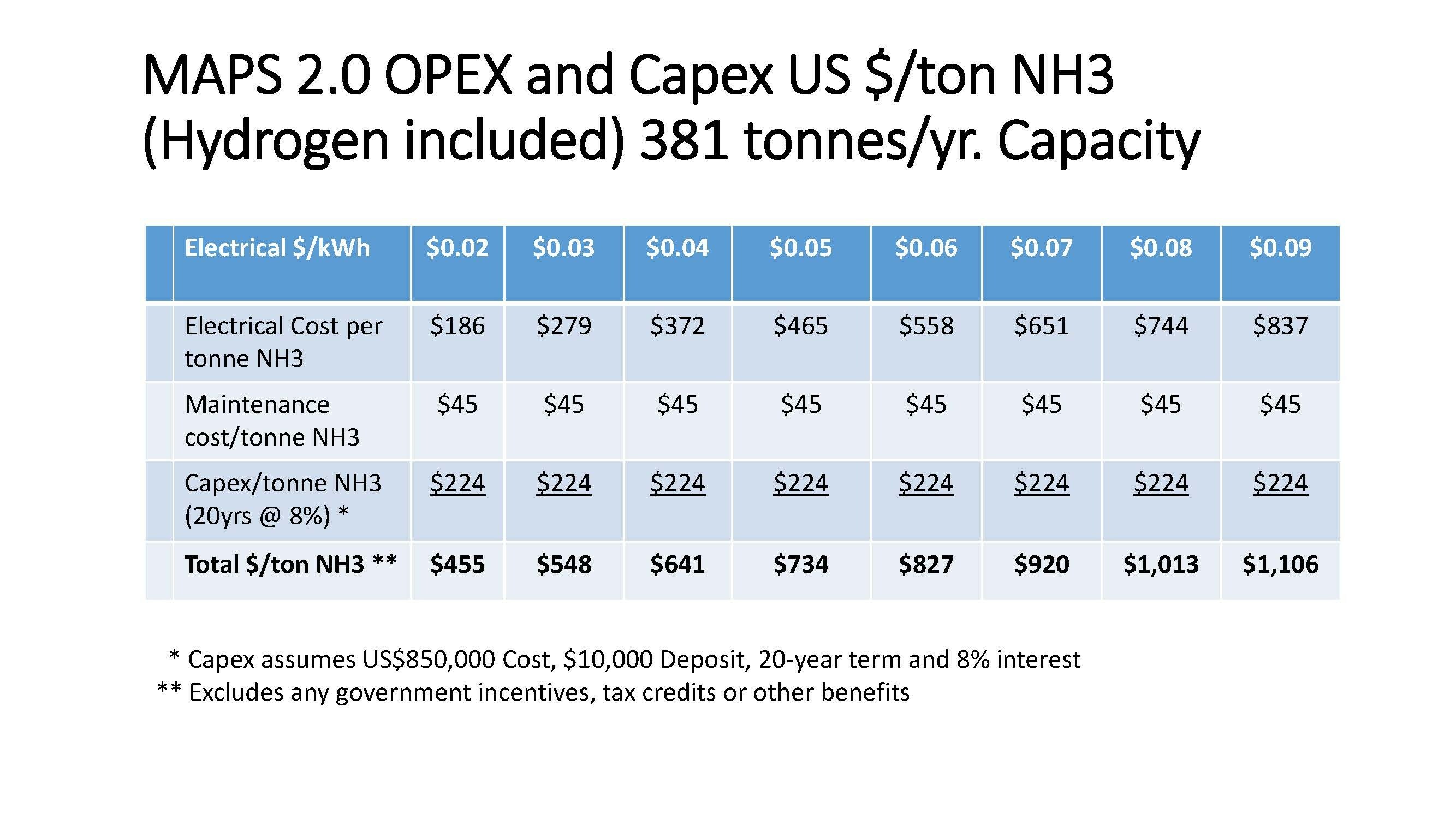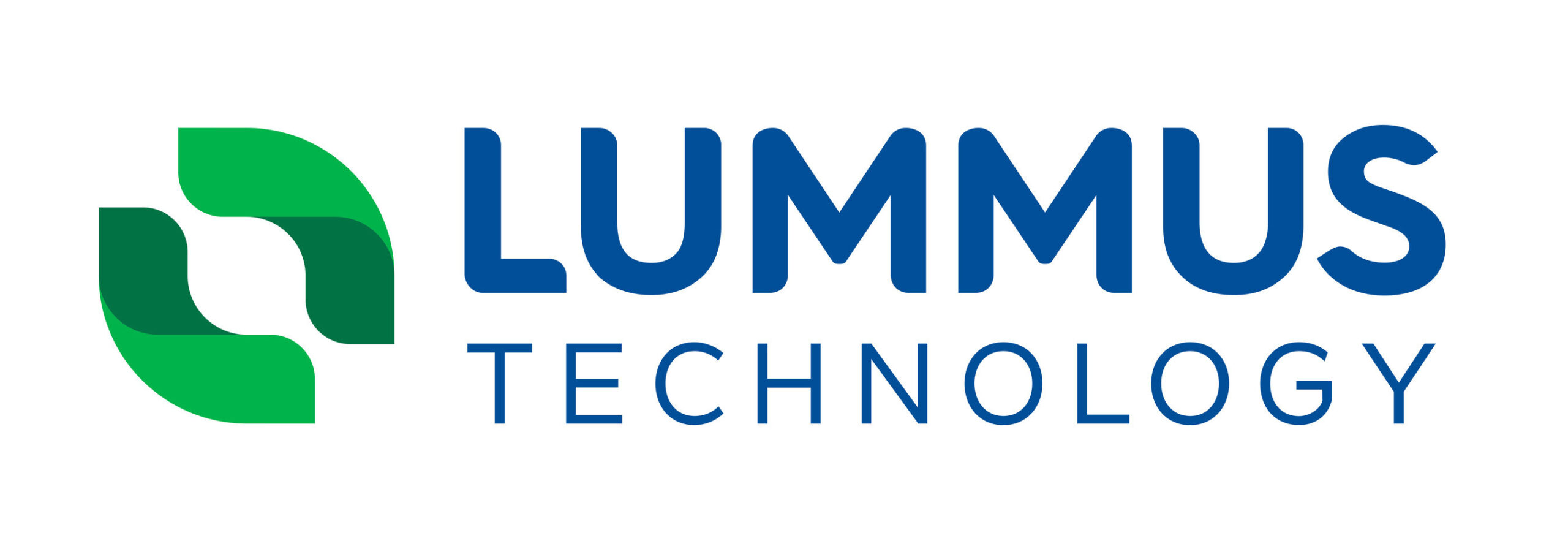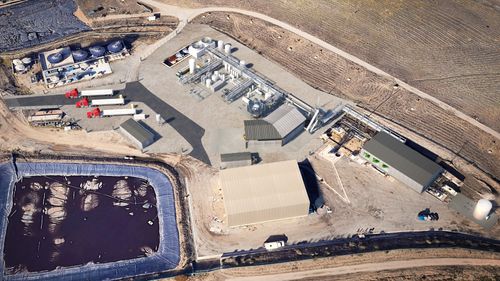Hydrofuel Canada Inc. has been issued US Patent 11,885,029 “Systems and Methods for Forming Nitrogen-Based Compounds” and has completed of their Micro Ammonia Production System (MAPS 1.0) commercial prototype, enabling high-yield, sustainable ammonia synthesis from air and water with unprecedented efficiency using a gas-phase electrochemical process.
The MAPS 1.0 and 2.0 technologies significantly reduce the costs and energy requirement of making ammonia (NH3) compared to traditional methods, according to a news release. Multiple 381 ton per year units can be combined to operate in series or parallel to increase capacity.
The US$700,000 MAPS 1.0 version uses externally produced hydrogen (H2) to synthesize with nitrogen from air to make ammonia.
The US$850,000 MAPS 2.0 system represents a major breakthrough in the production of green hydrogen and ammonia, as it addresses one of the biggest challenges in hydrogen production – the high cost of electrolysis. By combining hydrogen and nitrogen production in a single unit, MAPS 2.0 eliminates the need for separate production processes, significantly reducing the overall cost of green ammonia and the hydrogen in it to 50% of the cost of hydrogen produced via current electrolysis technologies. All Capex and Opex costs quoted exclude any government incentives or tax credits.

“We are thrilled to announce the issuance of our US patent for MAPS 1.0 and the completion of our commercial prototype” said Greg Vezina, Chairman and CEO of Hydrofuel Canada. “This is a major milestone and a significant step towards making clean energy and fertilizer more affordable and accessible with MAPS 1.0 units expected to be available by the spring of 2025. With MAPS 2.0 expected to be released in the summer of 2025, customers will be able to produce and store green hydrogen in ammonia at a fraction of the cost, making it a game-changer in the clean energy and fertilizer industries. We will soon announce details of our pre-order campaign that will enable customers to place a small deposit on one of our MAPS units for early delivery.”
The company is currently in talks with potential partners and investors to bring MAPS 1.0 and 2.0 to the market and make a significant impact in the clean energy and fertilizer sectors. With the US patent and commercial prototype completed, Hydrofuel Canada is one step closer to achieving their goal of making green energy and chemicals more affordable and accessible for all.






